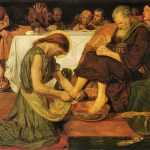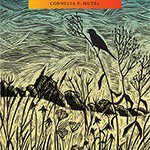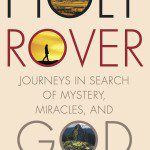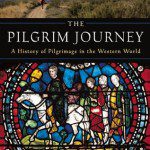 When I was growing up, I was one of Jo’s girls. If you’re a fellow fan of Louisa May Alcott’s Little Women, you’ll know exactly what I mean by that. The strong-willed, passionate Jo was my favorite of the four daughters whose lives fill the book, which I’d read at least a half dozen times.
When I was growing up, I was one of Jo’s girls. If you’re a fellow fan of Louisa May Alcott’s Little Women, you’ll know exactly what I mean by that. The strong-willed, passionate Jo was my favorite of the four daughters whose lives fill the book, which I’d read at least a half dozen times.
Through my blog I’ve gotten to know someone even more passionate about Alcott’s book than me: Susan Bailey, who has the blog Louisa May Alcott is My Passion. On it she explores not only the books written by this beloved author, but also the lives of those in Alcott’s family and literary circle. With Henry David Thoreau as a teacher, and Ralph Waldo Emerson as a family friend, who can imagine the interesting childhood Alcott had.
Susan Bailey has a new book: Louisa May Alcott Illuminated by The Message. It’s part of a series called Literary Portals to Prayer, which is meant to encourage a kind of literary lectio divina, which is a form of contemplative reading that is a pathway to prayer.
It’s a creative idea, isn’t it? Other authors in the series include Jane Austen, Charles Dickens, Herman Melville, and William Shakespeare. Passages from each author’s works are matched with verses from The Message, which is a version of the Bible in contemporary language by Eugene Peterson.
In the introduction to her book, Bailey writes that in her her time, Louisa May Alcott was not considered religious; neither she nor any member of her family had any formal affiliation with a church. And when Little Women was published, it wasn’t considered a suitable book for Sunday school libraries because it wasn’t explicitly Christian.
But spiritual themes are woven through the book, especially in the grappling Alcott does with the suffering and death of virtuous people (if you, like me, sobbed at the death of Beth, you know this is true).
Here’s an example from the matching of passages:
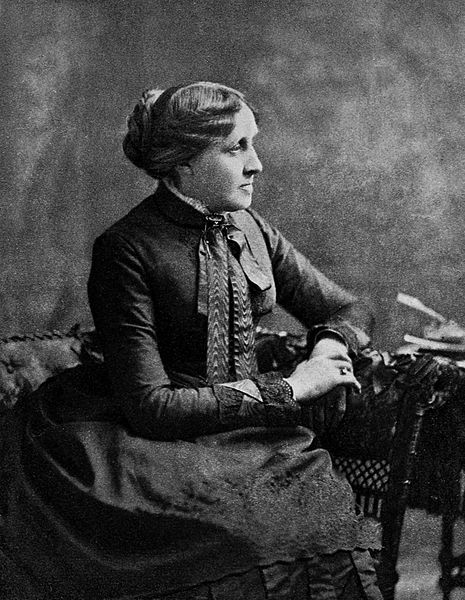
From Little Women, the last days of Beth:
It was well for all that this peaceful time was given them as preparation for the sad hours to come, for by-and-by, Beth said the needle was `so heavy’, and put it down forever. Talking wearied her, faces troubled her, pain claimed her for its own, and her tranquil spirit was sorrowfully perturbed by the ills that vexed her feeble flesh. Ah me! Such heavy days, such long, long nights, such aching hearts and imploring prayers, when those who loved her best were forced to see the thin hands stretched out to them beseechingly, to hear the bitter cry, Help me, help me! and to feel that there was no help. A sad eclipse of the serene soul, a sharp struggle of the young life with death, but both were mercifully brief, and then the natural rebellion over, the old peace returned more beautiful than ever. With the wreck of her frail body, Beth’s soul grew strong, and though she said little, those about her felt that she was ready, saw that the first pilgrim called was likewise the fittest, and waited with her on the shore, trying to see the Shining Ones coming to receive her when she crossed the river.
And from Psalm 66:
Bless our God, O peoples!
Give him a thunderous welcome!
Didn’t he set us on the road to life?
Didn’t he keep us out of the ditch?
He trained us first,
passed us like silver through refining fires,
Brought us into hardscrabble country,
pushed us to our very limit,
Road-tested us inside and out,
took us to hell and back;
Finally he brought us
to this well-watered place.
An intriguing idea for a book, no? And there’s no better person to write it than Susan Bailey.

